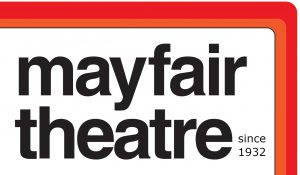Rhymes For Young Ghouls
2014 | 88 minutes
OTTAWA PREMIERE
A young Aboriginal teenage girl, a drug dealer by trade, plots revenge against the Indian agent who is dominating her life.
***
So begins this harrowing, explosive debut from Jeff Barnaby. The backstory may be unfamiliar to international audiences – the post-genocide period of my country’s treatment of its Native population was governed by the Indian Act, words from which serve as the introductory passage to this film. It was mandated that any child of age was to be placed into a “residential school”, and that “any means necessary” could be used to force the youth away from their communities. Ostensibly to foster the education of these children, the schools became rife with abuse and corruption, where the language and culture of the individuals was subsumed under the aegis of “civilizing” these children.
This practice continued well into the 20th century, serving as a backdrop for this film set in the late 1960s and early 70s. After this stunning opening sequence, we’re introduced to Aila, now fifteen and already savvy enough to be running her own drug enterprise. She uses the profits from her dealings to pay off the local representatives of the school, basically paying her way to freedom from formal education, but also freedom to live life within her community.
Underscoring the film is a kind of fable, adopting Mi’kmaq legends and even animated sequences to tie the elements together. Masks play a prominent role in the past, and the film teases with other “Indian” iconography, with pointed questions about why there’s a headdress on a particular image, or how frightening it is when two artists join forces to illustrate native ways.
There’s an anger to the film, to be sure, and some may well defensively pick apart the representation of the dominant culture. While the “white man” portrayal may be needlessly one-dimensional (for overt story reasons more than ideological, I’d hazard), the same can’t be said for the Native portrayals. We see the gamut of behaviours and impulses here, subtleties of characterization that’s extraordinarily rare on screen. It’s a tribute to Barnaby’s storytelling skills that he’s able to tell a heroic tale while still offering shades of subtlety in his characterization.
From the ensemble cast we’re treated to many powerful and fresh performances. Kawennahere Devery Jacobs plays the older Aila, and her intense stare and subtle beauty allows her to carry much of the film on her shoulders. Glen Gould plays her father with the right mix of intensity and compassion, while Brandon Oakes as “Uncle Burner” provides the most interesting, and most morally ambivalent, of characters. The child performers are for the most part excellent, and the rest of the cast feel as perfectly integrated into the story as does the remarkable sets, locations and production design elements.
The film is told with a mix of lyricism and kicks to the gut, and is all the better for these shifts in tonality. It’s remarkable how the narrative feels both highly specific to this community, yet near mythic in a more universal, classic sense. What is clear here is that Barnaby, as both screenwriter and director, is a tremendous talent, able to juggle these differing elements effectively while creating a world class piece.
Too often in this country we dismiss our own art, looking particularly to the South for much of our cultural representation. While French language cinema has done well to break out of its cocoon and craft Internationally prominent cinema, too often on the English side we’re left with mediocrity. At the same time, often “issue” films like this one get bogged down in polemics, with debut film in particular victims of trying to do everything at once and losing the focus on the core aspects of the works as a film, rather than a screed. Rhymes is thus all the more cause for celebration, for it’s an impressively accomplished debut, a startling, unsettling narrative, and a series of strong performances that should solidify this as a future touchstone in both Native and English Canadian cinema.
One of the better films I saw at this year’s festival, Rhymes For Young Ghouls is an absolute must see. It’s a showcase of emerging talents as well as a hard-hitting, insightful cultural expression from this land, a film certainly deserving of a wider International audience.
-JASON GORBER, TWITCH FILM
